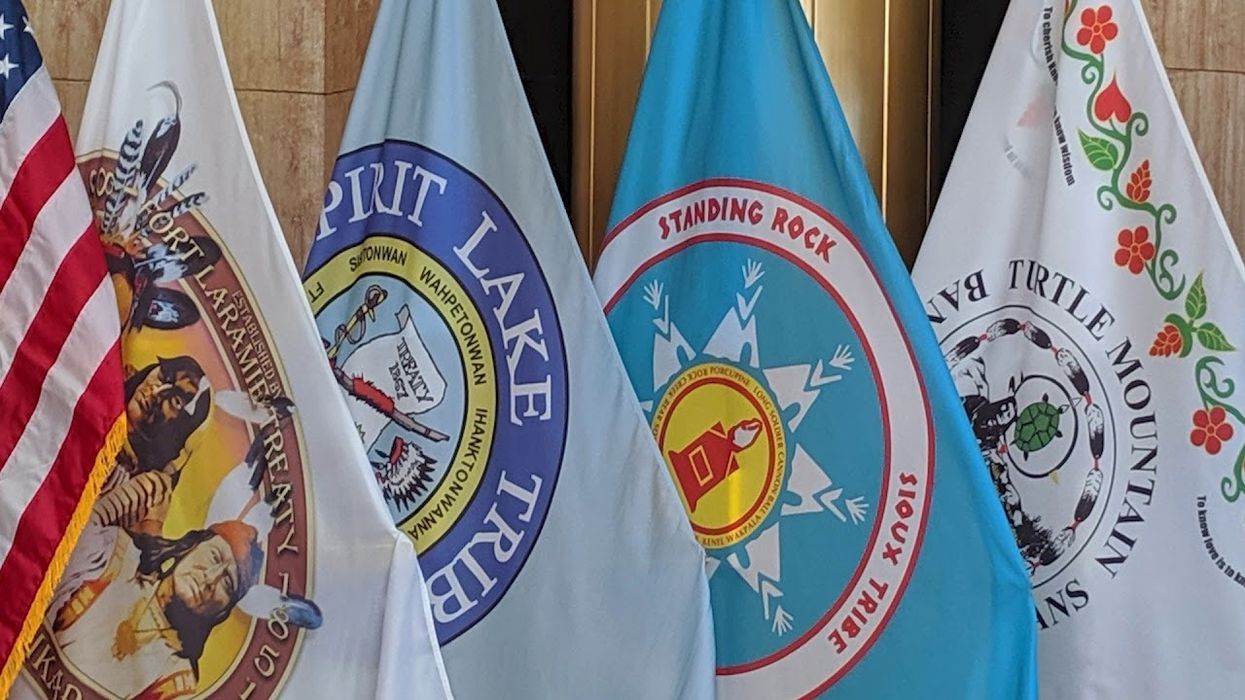Gaber is director of trial litigation for the nonpartisan Campaign Legal Center and Campbell is an attorney for the Native American Rights Fund.
Four years and two federal lawsuits later, North Dakota officials have finally abandoned their latest quest to make voting difficult for Native Americans.
Faced with the prospect of defending the state's "residential street address" voting requirement at a trial that had been scheduled for this month, the state has agreed to provide essential safeguards to protect Native Americans' right to vote and ease the tremendous financial and logistical burden the discriminatory law created for North Dakota tribal leaders.
The settlement, reached in February and formally approved last week by federal Judge Daniel Hovland, includes a host of protections that will make voting in this year's presidential election easier for people living on reservations. Our clients, the Standing Rock Sioux Tribe and Spirit Lake Nation have over 7,000 residents of voting age collectively. The settlement will help the tribes and individuals we represent, but the impact will extend beyond that to all voters living on tribal lands.
Under the consent decree, North Dakota has promised that tribal IDs and tribally designated street addresses will be accepted at polling places. It also cements commitments by state officials to seek reimbursement of the tribes' expenses in producing voting IDs and to coordinate with the Department of Transportation to visit reservations before each election and provide state-issued IDs at no cost.
One of its strongest protections, however, allows Native American voters who do not have (or do not know) their residential street address to locate their residence on a map at the polls or when applying for an absentee ballot — then be provided with their address by county officials and have their ballots counted. This is a sweeping victory for Native American voting rights, and one that should send a message to other states looking to impose restrictions that disenfranchise historically marginalized groups.
When the Legislative Assembly mandated that voters show IDs listing a "residential street address," they knew it would have a disproportionate impact on Native American voters. Legislators knew that most residences on tribal land had not been assigned a "residential street address" by local governments — and, where an address had been assigned, it was often not communicated to the people that lived there. Due to the lack of consistent addressing on reservations, tribal members rely on post office boxes to receive mail and deliveries, open bank and utility accounts, and pay bills. As a result — unlike most white voters — Native Americans, especially those on reservations, are much more likely to have an ID listing a PO box rather than a street address.
State officials argued the law was necessary to allow government officials to vet whether voters actually live in the precinct where they vote, instead of just taking them at their word, but this rationale was merely a pretext. The process of obtaining a "residential street address" from a county government — which often involves a complicated bureaucratic maze that can take weeks to navigate — ultimately relies solely on the individual's description to county officials of where they live. So all the law actually accomplished was to create a burdensome hurdle unique to Native Americans — exactly what North Dakota legislators intended.
Voter suppression in the state is nothing new. In the past, it required Native Americans to disavow their tribal relations and prove they lived "just the same as white people" in order to vote. The "residential street address" requirement might seem more subtle, but it too is a time-tested discriminatory tactic: In 1889, North Carolina enacted a similar law with the purpose of disenfranchising black voters who lived on streets the state had not named and in houses to which the state had not assigned numbers.
This was a shameful tactic for North Dakota's Legislature to import into the 21st century.
We applaud Al Jaeger, who's been secretary of state for 26 years, for moving beyond these discriminatory schemes, settling these lawsuits and agreeing to the relief our clients sought from the beginning: a meaningful method for Native American voters to verify their residency and protect their constitutional right to vote. And we are relieved this agreement comes in the form of a consent decree enforceable in federal court. We will be monitoring the state's compliance.
Most of all, we urge North Dakota's legislators and statewide officials to finally consign to the history books the state's shameful history of Native American voter suppression.
States should learn from this and build in protections for people who don't have traditional street addresses. Particularly during an election in which vote-by-mail requests are expected to surge, it is important that peoples' voting rights are not dependent on where they reside.



















Trump & Hegseth gave Mark Kelly a huge 2028 gift